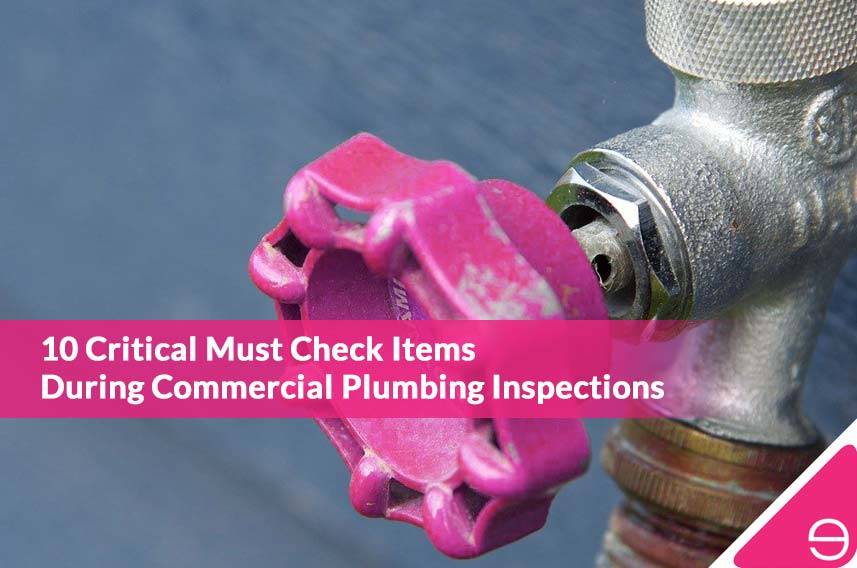Plumbing systems are more intricate than you could ever imagine, meaning plumbing inspections need to be done regularly.
Pipes, valves and drains can develop a whole range of problems with wear and tear.
And in a commercial building a plumbing system will be exposed to a whole series of problems as a result of constant use by many people, ranging from employees to customers.
Thus there are a number of must check items to review during a commercial plumbing inspection.
In the following article, we cover the 10 most critical checks professionals must do during commercial plumbing inspections.
Table of Contents
Active Leaks
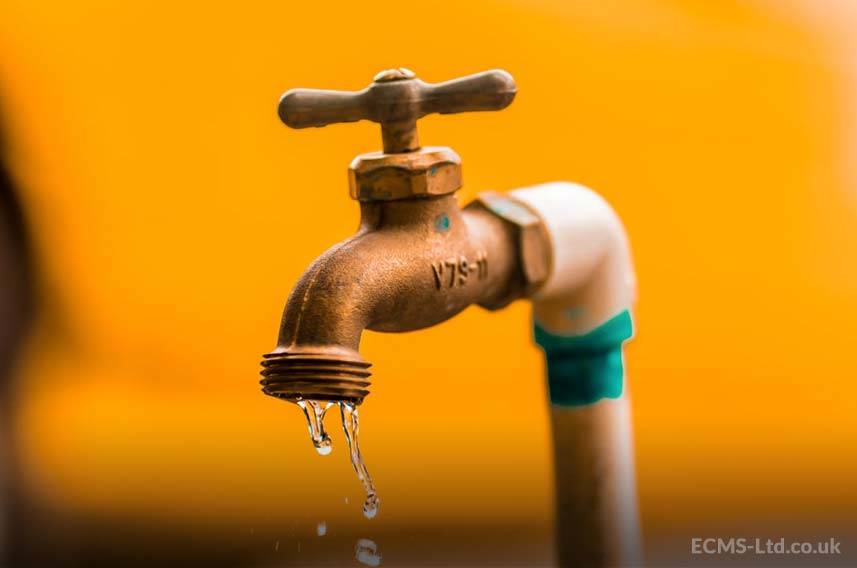
A plumbing inspection needs to be proactive, so that problems are noticed as soon as possible and fixed before they become more serious or irreparable.
Leaks are a common problem in any plumbing system.
These include water spots, or puddles, as well as the presence of moisture, mould and mildew.
A small leak could end up resulting in considerable wastage over a long period of time if left unattended.
Signs of Corrosion
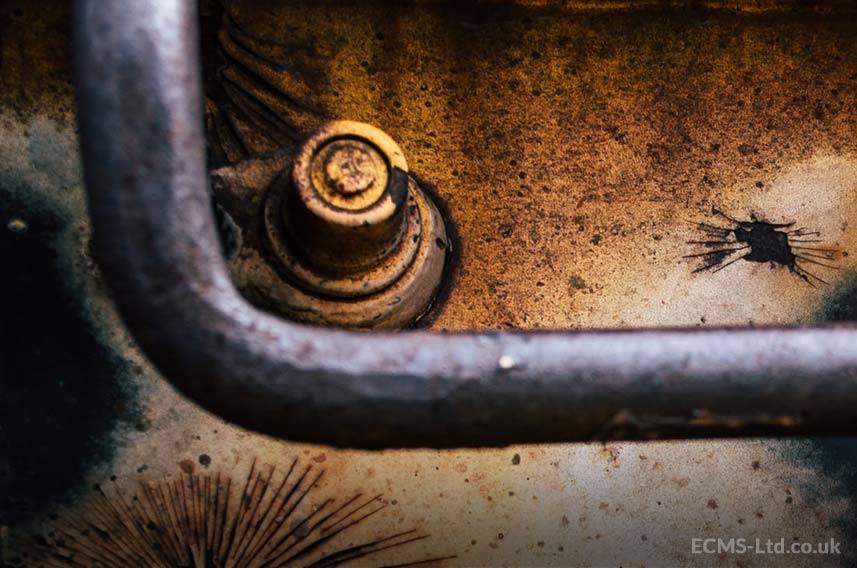
Signs of corrosion could be evident on pipes.
This also includes the presence of limescale especially on stop cocks, taps and other fixtures.
Considerable corrosion reflects the importance of considering replacement of those pipes in the near future.
Water Pressure Levels
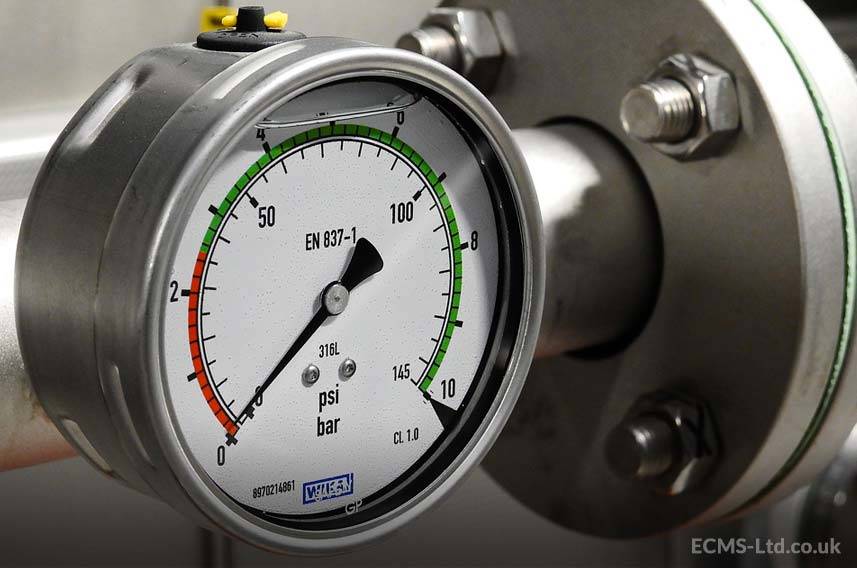
Water pressure levels should be within a certain range, depending on the type of building.
When it comes to buildings with multiple stories, there is generally high water pressure on the ground levels of the building, whereas on upper floors lower water pressure is commonplace.
Low water pressure is not recommended, while a high pressure could lead to pipe damage.
An inspection should check if the water pressure is between 40psi and 80psi.
Check Valves
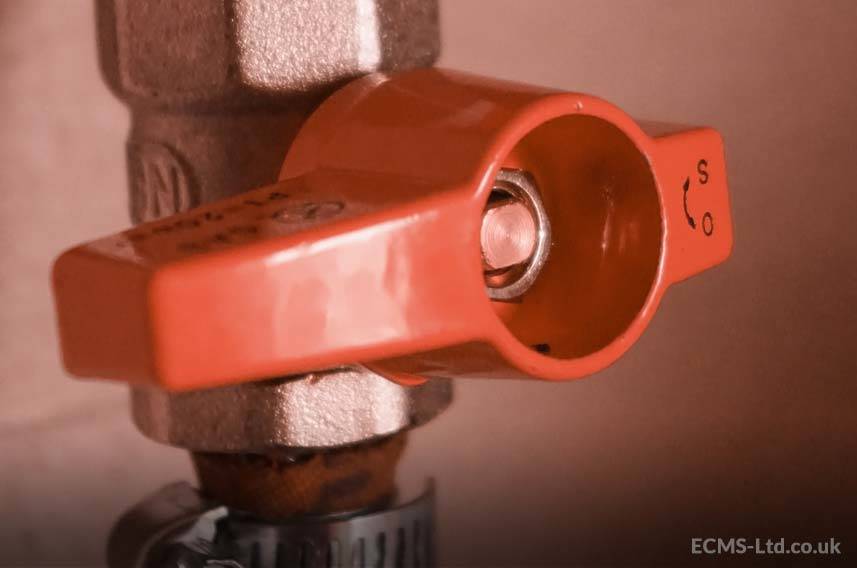
Valves may be small elements in a plumbing system, but in truth they are very important.
All safety and shutoff valves in a plumbing system should be tested so as to see that they are operating properly.
In an inspection it will be possible to notice broken valves, which can then be replaced.
Water Heater (Boiler) Inspection
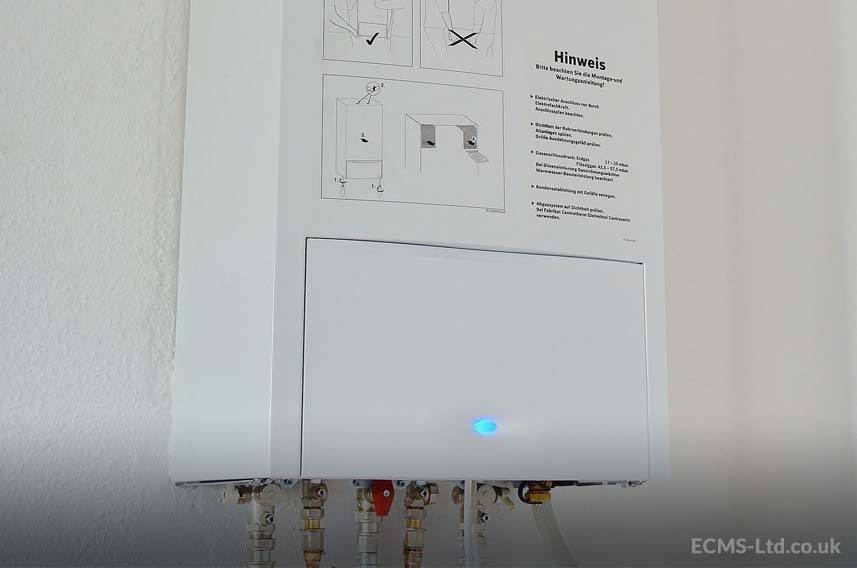
Water heaters and boilers are put through their paces around the clock, so over time they may need to be replaced.
This could be either because of leakages, or to ensure that the correct constant temperature is being achieved.
During a water heater inspection it is also common to inspect safety valves as well as test for any overflows.
Check Drains
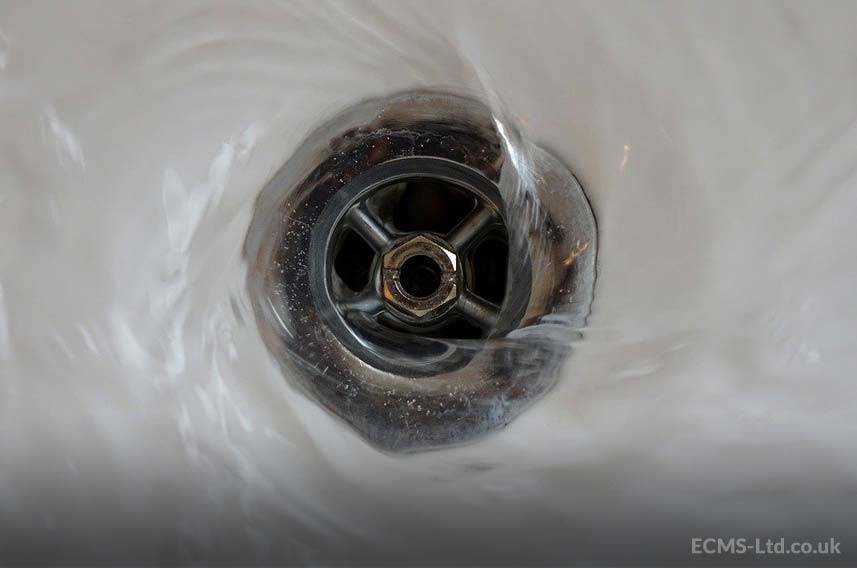
During a plumbing inspection it is important to check the drains, particularly for their flow rate.
Slow drains are common, and at times drains may be clogged too.
These issues should be handled as soon as possible so as to avoid a major blockage.
Hydrojetting is generally the solution in such cases.
In more serious blockages, a camera inspection may be carried out in the drain lines.
This will also offer you a detailed and clearer idea of any bellying in the lines, root infiltrations or other problems present in the drains.
Plumbing video camera inspections are carried out in underground sanitary drains as well as sewer pipes.
In some cases there could be cracks, or misalignments, which end up resulting in drain blockages or drain collapse.
Back-flow Testing
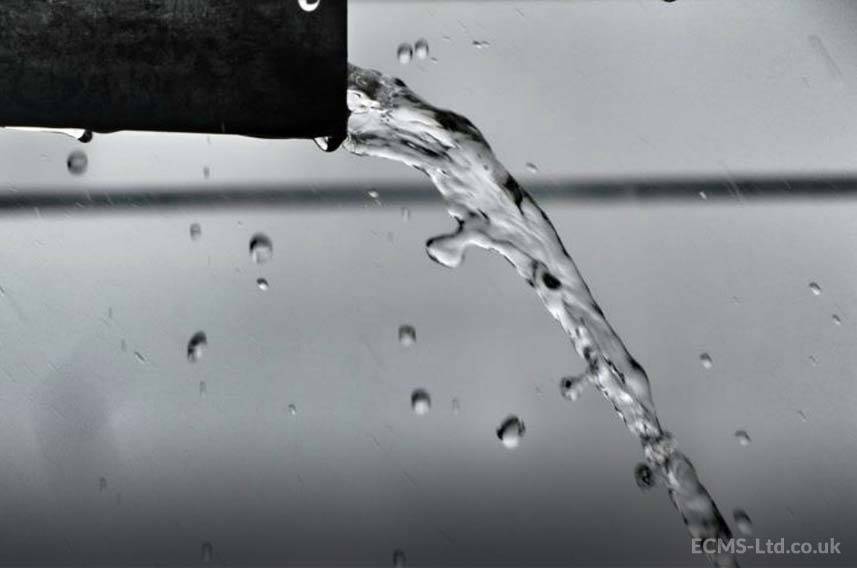
Large buildings like commercial establishments and business premises will have backflow prevention devices.
This is to ensure that there is no possibility for contamination should the water in the system flow backwards.
Water Filtration Systems
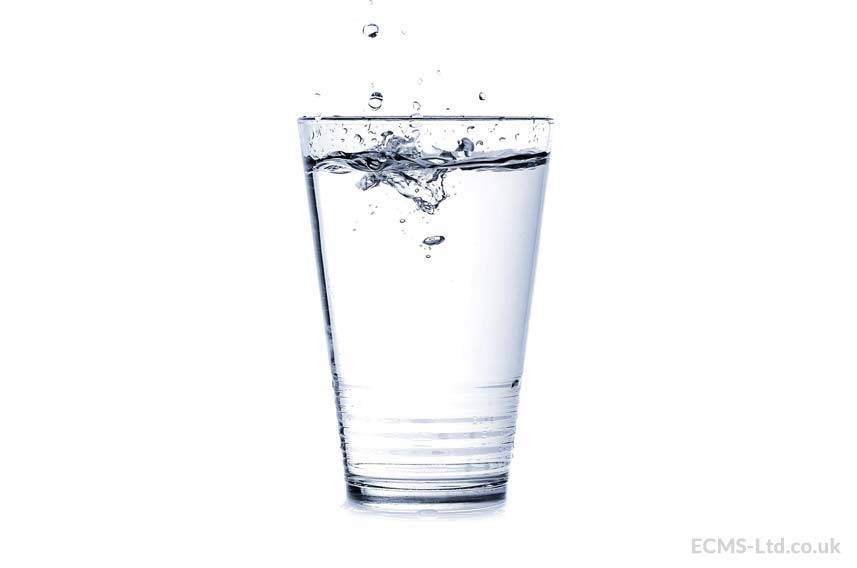
It is important to check water filtration systems during a plumbing inspection to ensure that they are in good running order and producing clean, drinkable water.
Bathroom Inspections
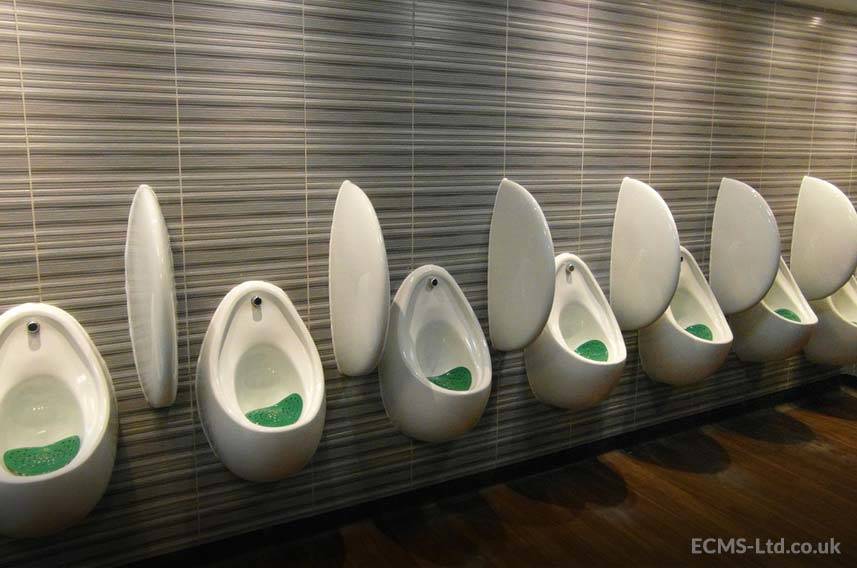
Bathrooms are used for various reasons by people working or visiting the commercial premises.
Toilets and sinks are the most commonly used, but in some cases there may also be showers and baths too.
All of these should be inspected to ensure that they are working properly.
Storage Water Tank Inspection
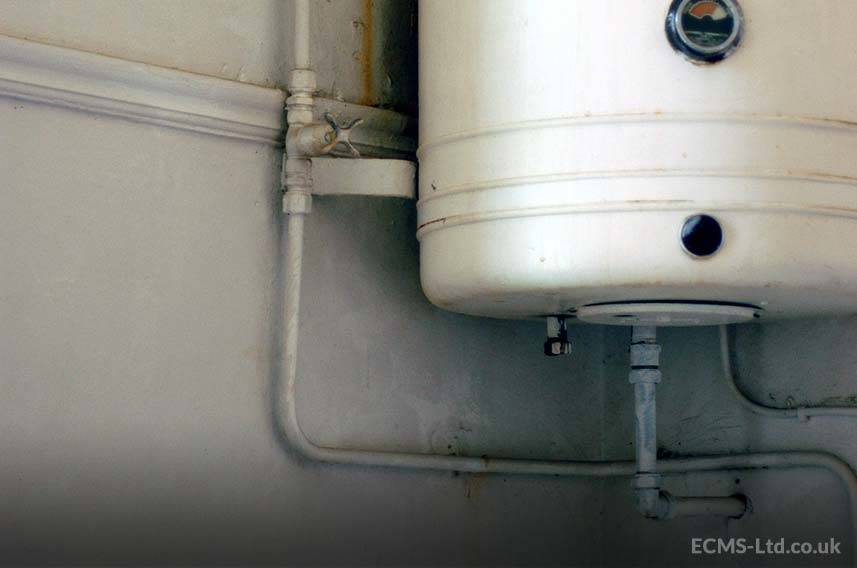
In cases where there are storage water tanks present, a thorough inspection will also be carried out to ensure proper function and no obvious flaws such as leaks or corrosion.
Conclusion
Ideally a plumbing inspection is carried out by a fully trained and accredited plumber who will be able to address all areas of a plumbing system.
It is important to avoid the tendency of only calling a plumber only when an emergency arises, or when a problem is evident.
Routine maintenance or scheduled plumbing inspections in commercial buildings should be carried out at least once a year.
Such scheduled maintenance will ensure that any minor problems are addressed as soon as possible, as otherwise if they are left unattended, there is a big chance that they will become major problems.
This may result in considerable expenses, which could have been avoided with a routine inspection.
A plumbing inspection will not only give you peace of mind that everything is in order and in good condition, but also end up saving you money in the long run.


